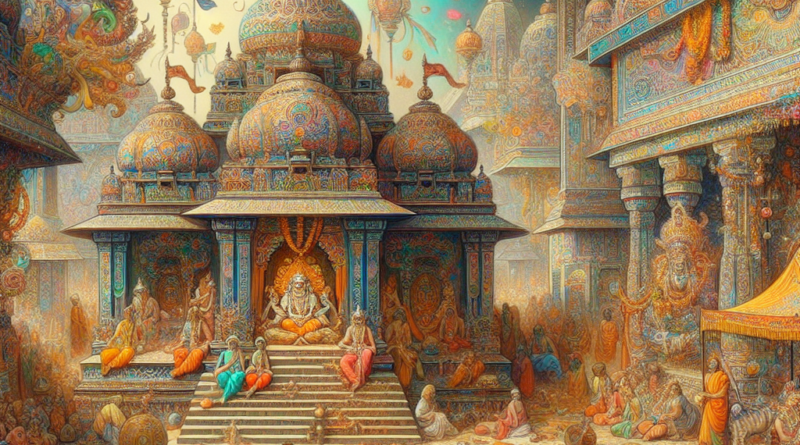Unlocking the Mysteries of Vedic Tradition
Title: Exploring the Vedic Traditions: Hindu and Indian Cultural Significance
Introduction
The Vedic traditions hold a sacred place in Hinduism and Indian culture, serving as the foundation of spiritual, philosophical, and social practices. Rooted in ancient scriptures known as the Vedas, these traditions have shaped the beliefs and rituals of millions of people for centuries. In this article, we will delve into the historical context, cultural significance, and contemporary relevance of the Vedic traditions in Hinduism and Indian society.
Historical Context
The Vedas, which are considered the oldest scriptures in Hinduism, were composed in ancient India between 1500 and 500 BCE. These texts were revealed to the seers or rishis during deep meditative states and were passed down orally from generation to generation before being eventually transcribed. The Vedas are divided into four main collections: Rigveda, Samaveda, Yajurveda, and Atharvaveda, each serving different purposes such as hymns, chants, rituals, and philosophical teachings.
The Vedic traditions encompass a wide range of practices and beliefs, including sacrificial rituals, meditation, yoga, cosmology, ethics, and philosophy. The concept of dharma, karma, reincarnation, and the pursuit of liberation (moksha) are central themes in Vedic thought. The Upanishads, which are philosophical texts that delve deeper into the nature of reality and the self, also form an integral part of the Vedic traditions.
Cultural Significance
The Vedic traditions have had a profound impact on Hindu culture, shaping its religious beliefs, social norms, and artistic expressions. The rituals and ceremonies prescribed in the Vedas form the basis of Hindu worship and are performed in temples, homes, and sacred sites across India. The chanting of Vedic mantras, the performance of yagnas (fire rituals), and the observance of festivals like Diwali, Navaratri, and Holi are all rooted in Vedic practices.
The Vedic worldview, which views the universe as interconnected and cyclical, has influenced Indian art, music, dance, and literature. The principles of ahimsa (non-violence), seva (selfless service), and compassion are also derived from Vedic teachings and form the moral foundation of Indian society. The caste system, although not explicitly mentioned in the Vedas, has been historically justified through Vedic texts, leading to a hierarchical social structure in India.
Contemporary Relevance
In modern times, the Vedic traditions continue to play a significant role in the lives of Hindus and Indians around the world. Yoga, which has its roots in Vedic philosophy and practices, has gained immense popularity as a form of physical exercise, meditation, and spiritual growth. Ayurveda, the traditional system of medicine mentioned in the Vedas, is also experiencing a revival as people seek holistic healing methods.
The ethical teachings of the Vedas, such as respect for nature, compassion for all beings, and the pursuit of self-realization, are increasingly relevant in today’s world marked by environmental degradation, social injustice, and materialism. The concept of karma and dharma reminds individuals to act responsibly and ethically in their personal and professional lives, fostering a sense of interconnectedness and interdependence.
Conclusion
The Vedic traditions hold a timeless wisdom that continues to inspire and guide individuals on the path of spiritual growth and self-discovery. Their cultural significance in Hinduism and Indian society cannot be overstated, as they form the bedrock of religious practices, social customs, and moral values. By understanding and embracing the teachings of the Vedas, we can tap into a rich heritage that offers profound insights into the nature of existence and the pursuit of a meaningful life.

